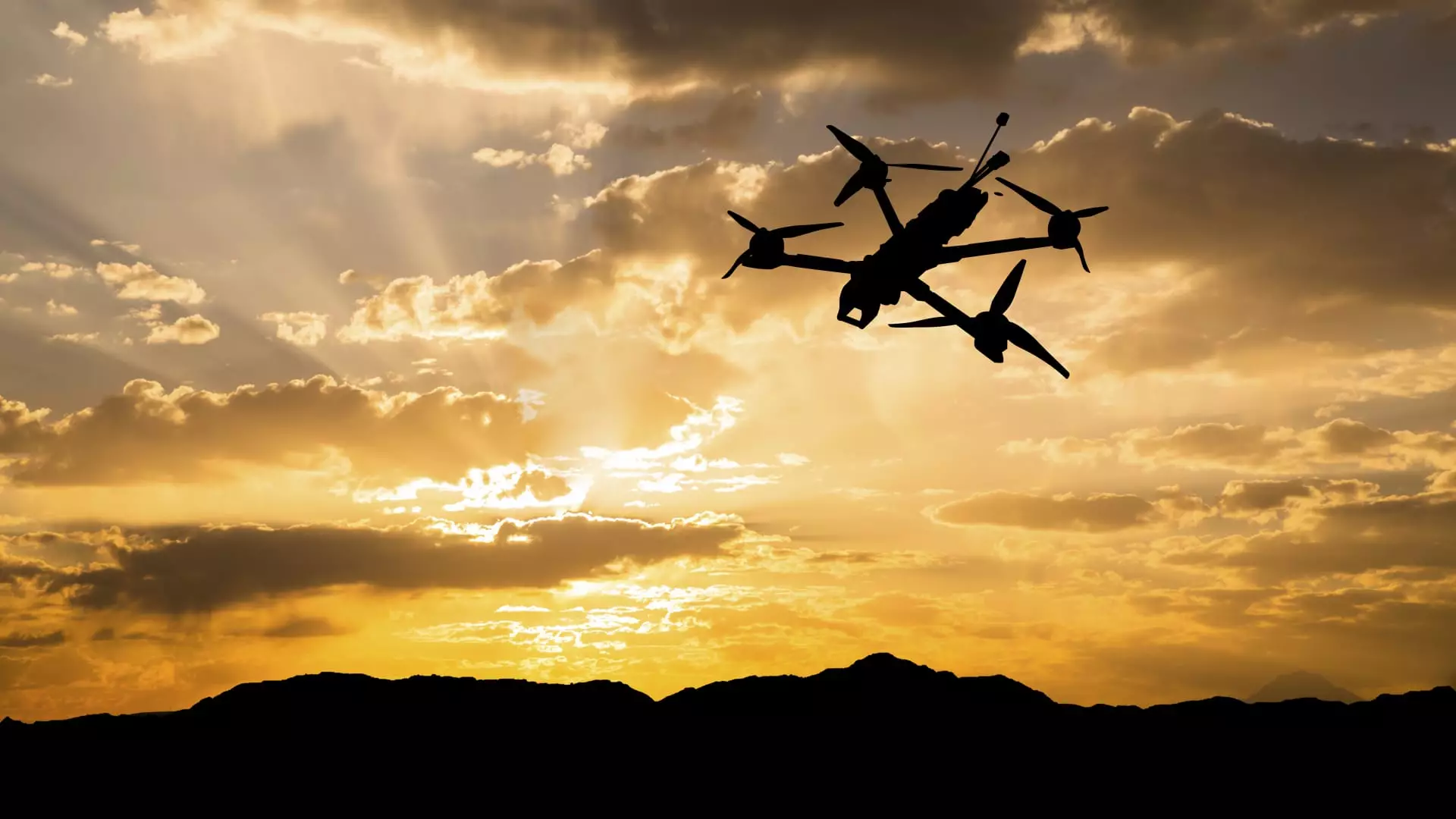The recent rally in drone stocks highlights the dynamic interplay between technological advancements and market sentiment. On a notable Monday, share prices for key players in the sector surged, driven by increasing retail interest. Much of this enthusiasm was fueled by the news of a strategic partnership between Palantir Technologies and Red Cat Holdings aimed at integrating advanced visual navigation software into drone operations. Red Cat’s shares soared over 19% following the announcement, demonstrating the potential for innovation to significantly impact stock performance.
This ascension in interest was amplified by online trading communities like Reddit’s WallStreetBets, where conversations around Red Cat (ticker RCAT) swelled dramatically—by an astonishing 1,625%. Such grassroots support underscores the growing influence of retail investors in the stock market. The increasing popularity among retail traders not only boosts stock prices but also shapes perceptions about the future viability and potential of drone technology in various sectors.
Adding to the excitement surrounding drone stocks are a series of recent sightings in New Jersey that have piqued interest and speculation. Although the FBI reported no evidence to suggest these drones posed a threat to national security, the incidents have ignited discussions about the implications of drone technology in public safety and surveillance. Misidentifications with manned aircraft have further complicated the narrative, leading to both intrigue and caution within the market.
The potential for increased funding and investment in the drone market appears robust as these discussions continue. Analysts predict that as awareness grows regarding the dual-use nature of drone technology—spanning both commercial and defense applications—there may be a concerted push towards bolstering domestic manufacturing and deployment strategies.
As the political landscape shifts with the incoming administration, investors are eyeing the implications for the drone industry closely. There is an optimistic sentiment that the new White House leadership could catalyze significant funding for U.S.-made drone technologies. Tesla CEO Elon Musk is a major advocate for drone applications, and his potential influence with the administration raises hope for further development and investment in the sector.
The connection between political figures and the drone industry is underscored by Donald Trump Jr.’s association with Unusual Machines, which has seen a notable increase in stock value, climbing over 10%. As government entities are observed increasingly investing in counter-drone technology for public safety, the synergy between political advocacy and technological advancement may lay the groundwork for sustained growth in the market.
Legislative attention towards the drone sector is another component driving investor interest. The recent National Defense Bill illustrates congressional intentions to fortify domestic drone manufacturing capabilities and limit foreign competition, particularly from companies like DJI. If the Senate passes this bill, it could reshape the landscape of drone distribution and have enduring effects on market dynamics.
The recent surge in drone stocks reflects an intricate web of technological potential, retail investor enthusiasm, political advocacy, and legislative progress. The harmonious alignment of these factors indicates a promising future for drone technologies and their applications across various sectors, inviting both initial investments and sustained interest as the industry evolves.

